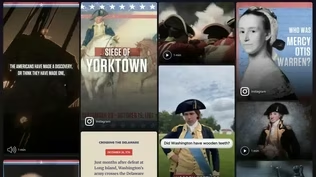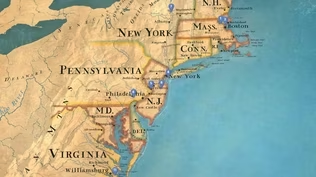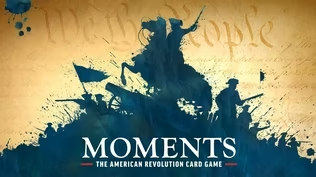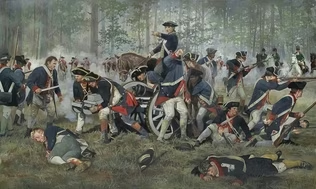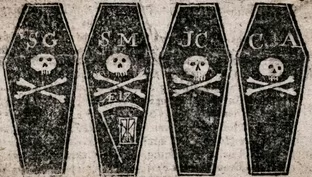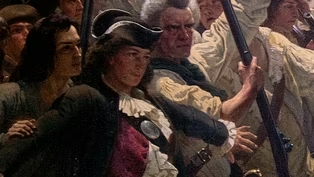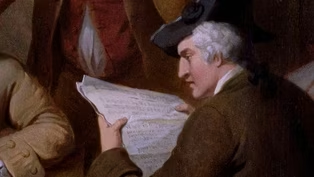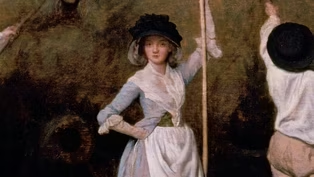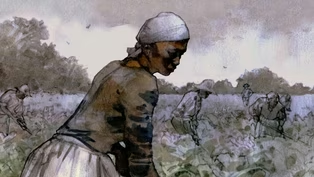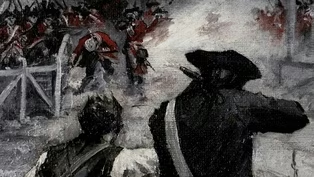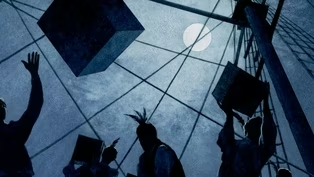
Rising Tensions Didn't Keep European Settlers from Coming to North America
Clip: Episode 1 | 2m 56sVideo has Closed Captions
Thousands poured down the Great Wagon Road, eager to start a new life in North America’s interior.
Tensions were rising between England and the colonies, but new arrivals and American-born colonists were eager to carve out new lives within North America’s interior. Thousands of English, Scots-Irish, German, and a small number of Jewish immigrants poured down the Great Wagon Road, running from Philadelphia to the Carolinas.
Problems playing video? | Closed Captioning Feedback
Problems playing video? | Closed Captioning Feedback
Episodes presented in 4K UHD on supported devices. Corporate funding for THE AMERICAN REVOLUTION was provided by Bank of America. Major funding was provided by The Better Angels Society and...

Rising Tensions Didn't Keep European Settlers from Coming to North America
Clip: Episode 1 | 2m 56sVideo has Closed Captions
Tensions were rising between England and the colonies, but new arrivals and American-born colonists were eager to carve out new lives within North America’s interior. Thousands of English, Scots-Irish, German, and a small number of Jewish immigrants poured down the Great Wagon Road, running from Philadelphia to the Carolinas.
Problems playing video? | Closed Captioning Feedback
How to Watch The American Revolution
The American Revolution is available to stream on pbs.org and the free PBS App, available on iPhone, Apple TV, Android TV, Android smartphones, Amazon Fire TV, Amazon Fire Tablet, Roku, Samsung Smart TV, and Vizio.
Buy Now
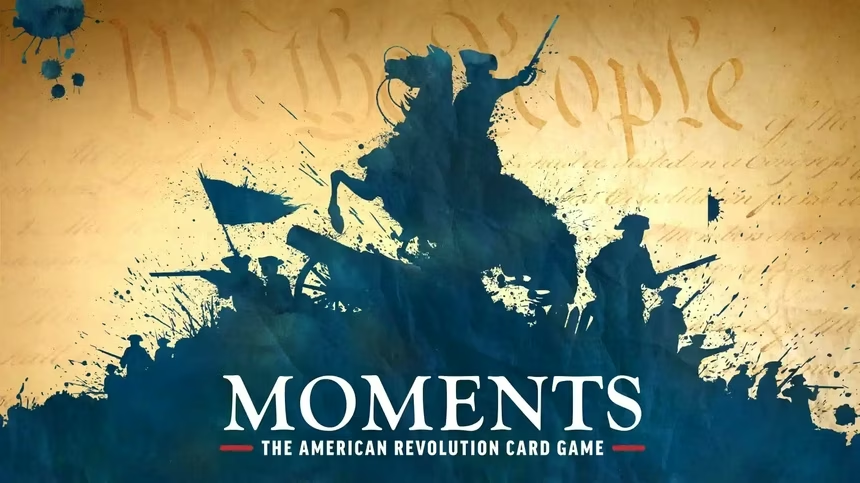
MOMENTS: The Revolutionary War Card Game
Use your knowledge of Revolutionary-era moments to build a timeline of real historical events.Providing Support for PBS.org
Learn Moreabout PBS online sponsorship♪ Voice: The spirit of emigration to America, which seems to be epidemic through Great Britain, is likely to depopulate the Mother Country, and leave our ancient kingdom the resort of owls and dragons, and other solitary animals, who shun the light, and seem displeased at the human race.
"The Edinburgh Amusement."
[Bell tolling] Narrator: The steadily rising tensions between England and its North American colonies did not slow the steady stream of English, Scots-Irish, German, and a small number of Jewish immigrants eager to carve out new lives within the North American interior.
Christopher Brown: Part of what really sets the North American experience apart is just how many European settlers are coming to North America.
[Horse nickers] And they keep coming.
15,000 a year.
A kind of empire was already in view.
Narrator: Thousands of new arrivals and American-born colonists poured down the Great Wagon Road that ran all the way from Philadelphia to the Carolinas.
The backcountry there was already the home of Native peoples, including the Catawbas and Cherokees.
Voice: Upon the whole, it is the best country in the world for a poor man to go to and do well.
And the farther they go back in the country, the land turns richer and better.
Here, a man of small substance, if upon a precarious footing at home, can, at once, secure to himself a handsome, independent living, and do well for himself and posterity.
All modes of Christian worship are here tolerated.
"Scotus Americanus."
Taylor: Colonial America is a very Protestant place.
And it's founded when the norm in Europe was that whoever your sovereign was got to set what the religion should be.
Narrator: Congregationalism was the established church in nearly all New England colonies.
The official religion in much of the South was the Church of England.
But those who belonged to other faiths resented being forced by colonial legislatures to pay the salaries of clergymen who did not minister to them.
None were more resentful than the backcountry settlers in the Carolinas-- Baptists, Presbyterians, Lutherans, Methodists.
Taylor: And what they hear from their ministers about whether resisting their sovereign or supporting their sovereign is the right thing to do as a Christian duty, that will matter a lot.
Video has Closed Captions
Clip: Ep1 | 7m 52s | A bloody clash between Bostonians and the British army leaves five dead in the Boston Massacre. (7m 52s)
Video has Closed Captions
Clip: Ep1 | 9m 39s | The American Revolution will be a war that will pit brother against brother – and birth a nation. (9m 39s)
Video has Closed Captions
Clip: Ep1 | 43s | A single shot echoes on Lexington Green, and the American Revolution begins. (43s)
Video has Closed Captions
Clip: Ep1 | 50s | A spark ignites—quiet, unstoppable. What follows changes everything. (50s)
How Land, Taxes and Rebellion Sparked the American Revolution
Video has Closed Captions
Clip: Ep1 | 7m 28s | The Stamp Act and taxes on American colonists lead to unrest and threaten to cause a revolution. (7m 28s)
How the Townshend Acts Fueled a Resistance Movement
Video has Closed Captions
Clip: Ep1 | 3m 11s | When the British imposed new taxes, women joined the Resistance Movement by the thousands. (3m 11s)
Liberty for Whom? Slavery, Protest and the Ideals of the Revolution
Video has Closed Captions
Clip: Ep1 | 7m 32s | The revolutionary ideals of liberty spread across the colonies while many suffer from enslavement. (7m 32s)
The Shot Heard ’Round the World: Lexington, Concord and the Start of War
Video has Closed Captions
Clip: Ep1 | 11m 39s | Tensions erupt as colonists confront the British Army at Lexington and Concord, beginning the war. (11m 39s)
Tea, Tar and Tyranny: How the Boston Tea Party Changed Everything
Video has Closed Captions
Clip: Ep1 | 9m 26s | Bostonians protest the newly passed Tea Act by dumping 46 tons of tea into the Boston Harbor. (9m 26s)
Providing Support for PBS.org
Learn Moreabout PBS online sponsorshipSupport for PBS provided by:
Episodes presented in 4K UHD on supported devices. Corporate funding for THE AMERICAN REVOLUTION was provided by Bank of America. Major funding was provided by The Better Angels Society and...

